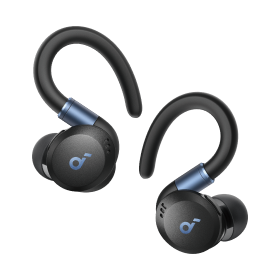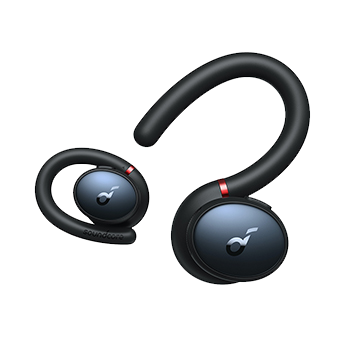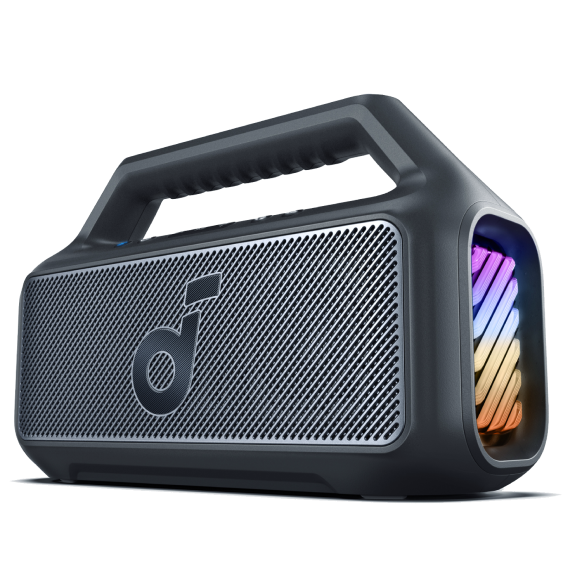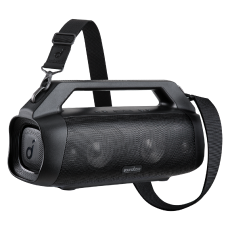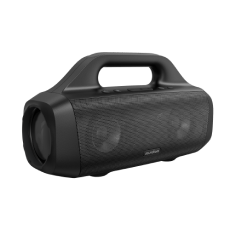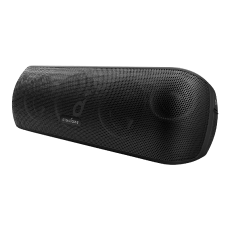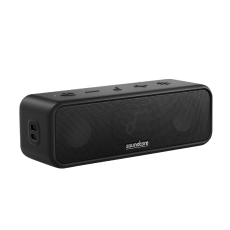Tinnitus, a condition causing the perception of sound without external stimuli, ranges from ringing to buzzing in the ears. Its impact varies, affecting concentration, sleep, and mental well-being, impacting millions globally. This comprehensive guide delves into the world of Tinnitus. We'll explore its causes, effects, and delve into the relationship between bone conduction headphones and Tinnitus. Do these headphones exacerbate the condition, or can they actually provide relief? Highlighting the best bone conduction headphones for Tinnitus, we aim to offer viable solutions for those affected. Read on to learn more!

What Is Tinnitus?
Tinnitus is a condition characterized by perceiving sound in the absence of an external source. It's often described as ringing, buzzing, hissing, or other similar phantom noises in the ears. This sensation can vary in intensity, frequency, and pitch, and it might be constant or intermittent. Tinnitus isn't a disease itself but rather a symptom of an underlying issue, such as age-related hearing loss, exposure to loud noises, earwax blockages, or conditions affecting the circulatory system.
It can be temporary or chronic, impacting an individual's quality of life, causing stress, difficulty concentrating, sleep disturbances, and in severe cases, emotional distress. While there's no known cure for most cases of tinnitus, various management strategies like sound therapy, counseling, and lifestyle changes can help alleviate its impact.
Can Bone Conduction Headphones Cause Tinnitus?
The relationship between bone conduction headphones and tinnitus is a topic of significant interest. Unlike traditional headphones, bone conduction technology transmits sound through the cheekbones, bypassing the eardrum. This unique method of sound transmission raises questions about its potential role in either exacerbating or alleviating tinnitus symptoms.
Current research suggests that bone conduction headphones, when used at moderate volumes, are less likely to contribute to tinnitus compared to conventional in-ear or over-ear headphones. This is primarily because they reduce the direct pressure on the eardrums, thus minimizing the risk of auditory damage that can lead to tinnitus.
However, like any audio device, misuse or exposure to excessively high volumes over prolonged periods can potentially harm hearing health. It's crucial for users to adhere to safe listening practices, regardless of the type of headphones they choose, to mitigate the risk of developing or worsening tinnitus.
Are Bone Conduction Headphones Good for Tinnitus?
In some cases, bone conduction headphones can offer benefits for some individuals with Tinnitus. By bypassing the ear canal and transmitting sound through bone vibrations, they might reduce discomfort caused by traditional headphones that directly impact the ear. Some find relief using bone conduction headphones because they don't obstruct external sounds, potentially masking the Tinnitus.
However, their effectiveness varies among individuals. While they might help manage Tinnitus for some by providing alternative auditory stimulation, others might not experience the same relief. Moderation is crucial; excessively loud volumes can still exacerbate Tinnitus or lead to further hearing issues.
Best Bone Conduction Headphones for Tinnitus
If you are looking for the best bone-conduction headphones for Tinnitus, Shokz OpenRun stands out, offering a blend of comfort, safety, and sound quality that aligns well with your needs. The open-ear design, featuring a lightweight, wraparound frame, ensures a comfortable listening experience without the pressure of earbuds in the ear canal, which is particularly beneficial for those with tinnitus.
The 8th generation bone conduction technology of OpenRun allows users to enjoy high-quality audio while keeping the eardrums open, thereby minimizing the risk of exacerbating tinnitus symptoms. This feature also ensures safety by keeping users aware of their surroundings. With 8 hours of continuous playtime and a quick charge feature, OpenRun is not only convenient but also efficient in delivering a premium audio experience directly through the cheekbone, making it an excellent choice for tinnitus sufferers seeking a balance between sound quality and ear health.
Best Alternative Headphones for Tinnitus
Besides bone conduction headphones, there are some other open ear headphones on the market, which are safe for Tinnitus. Here are some headphones for your reference.
soundcore AeroFit Pro

The soundcore AeroFit Pro emerges as an exceptional alternative to bone conduction headphones for those with tinnitus. These open-ear headphones provide an immersive sound experience, enhanced by personalized EQ settings and active noise cancellation, making them suitable for users with sensitive ears. The ergonomic design of the AeroFit Pro ensures a secure and comfortable fit, ideal for active use without exacerbating tinnitus symptoms. Their waterproof build adds durability, suitable for workouts and outdoor activities. The impressive battery life, complemented by a wireless-charging case, adds to the convenience. The integrated touch controls for easy navigation and call management are user-friendly, making the AeroFit Pro a top choice for those seeking a blend of high-quality sound, comfort, and durability in their audio devices.
soundcore V30i

The soundcore V30i stands out as a lightweight, open-ear alternative, ideal for tinnitus sufferers. Its soft, flexible ear hooks ensure comfort for all-day wear, which is crucial for those with ear sensitivity. The V30i offers rich, detailed audio, delivering a balanced sound profile across various frequencies without aggravating tinnitus. With a long-lasting battery, users can enjoy uninterrupted music for hours, adding to the practicality of these headphones. The convenient controls and built-in microphone facilitate seamless transitions between calls and music. Durable and portable, the soundcore V30i is perfect for those seeking a high-performance audio experience in a compact and user-friendly design, making it a great alternative to bone conduction headphones for individuals with tinnitus.
FAQs
Is It OK to Use Headphones with Tinnitus?
Using headphones with tinnitus is generally acceptable if done cautiously. It's important to choose headphones that don't exacerbate the condition, maintain moderate volume levels, and limit listening time. Opting for models that reduce ear canal pressure, such as open-ear or bone conduction headphones, can also help manage tinnitus effectively.
Can Bone Conduction Headphones Hurt Your Hearing?
Bone conduction headphones, when used responsibly at moderate volume levels, are unlikely to harm your hearing. They bypass the eardrum, directly stimulating the inner ear and reducing the risk of eardrum damage. However, excessively high volumes over prolonged periods can still potentially lead to hearing damage, just like with traditional headphones.
Are Open-Ear Headphones Better for Ear Health?
Open-ear headphones allow ambient sound to filter through, reducing the isolation effect. This can be beneficial for ear health as it lowers the risk of high sound pressure levels. However, prolonged exposure to loud environments still poses a risk, so moderation and lower volumes are advisable.
Conclusion
In conclusion, bone-conduction headphones are safe for Tinnitus. They offer a unique listening experience that minimizes pressure on the eardrums while providing quality sound. Besides those bone conduction headphones, their alternative models, open-ear headphones, can also cater to the specific needs of tinnitus sufferers, balancing comfort, safety, and audio performance. Remember, responsible usage is key to ensuring these innovative devices remain safe for tinnitus management.


















